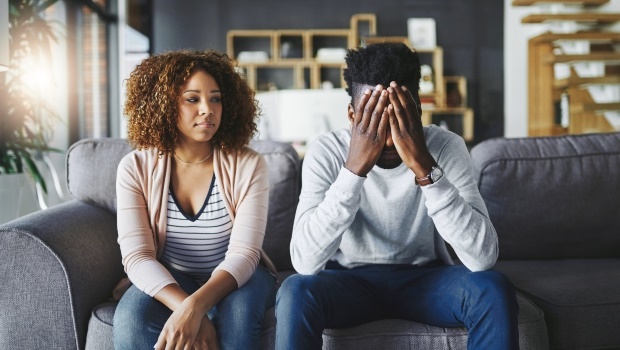
I’ve fallen out of love with you.” These must be among the most devastating words you can hear, especially if, like jewellery designer supremo Jenna Clifford, you hear them from the person you’ve spent years building a life with – someone with whom you had a family and imagined growing old and grey with.
And when there’s no other reason given – no new lover, for example – just that your partner no longer has feelings for you and wants to move on, it’s even more bewildering.
How do you cope with such unexpected heartbreak, start the healing process and perhaps learn to love again? YOU asked relationship counsellors for their advice and insights.
The blame game
“I wasn’t good enough,” you tell yourself. “There’s something the matter with me.” It’s common for people to blame themselves when a relationship ends, says Carol Nader, a registered couples counsellor from Johannesburg. “We think of all the things we did to drive our partner
We inflate our flaws.” But it’s important to remember that, while this crisis might leave you feeling you’re unlovable, you are indeed worthy of love. Cape Town marriage counsellor
Lauren Clucas agrees. Instead of seeing the break-up as a personal rejection, try to think of it more as your partner rejecting themselves in the relationship.
“When someone initiates an end to a relationship, uncertainty, guilt, shame and fear collide to create turmoil. They might choose to treat the person they’re leaving like an object, often opting to end it quickly and coldly to minimise their own suffering,” she adds.
Acknowledge the honesty
It’s a deeply honest move for a partner to admit their feelings for you have changed instead of trying to find fault with you or blaming you for the breakdown of the relationship.
“Your partner is taking responsibility for the fact that it’s their choice and they’re not blaming you,” Clucas says. “This is a person owning up to their feelings – and hard as it is to bear, there’s something to be said for that honesty.”
Cease all contact
One of the biggest mistakes people make is fooling themselves into believing they can still be friends with their ex immediately after separating, Nader says.
Contact might be possible down the road but at first it’s best to cut ties completely. This includes no messages, no get-togethers, no cyberstalking, no positioning yourself to “bump into” your ex by hanging out in places they frequent, no communicating with their friends and no fabricating reasons to see each other, such as returning a toothbrush.
You can’t simply switch off your romantic feelings toward someone and view them platonically overnight. Continuing to stay in contact prolongs the pain by allowing you to be hopeful. And having hope for reconciliation keeps you stuck in the transition and won’t allow you to get past the pain.
Take off the rose-tinted glasses
When your partner has abandoned you, you might tend to focus on all the positive things about them, which makes you pine for them even more.
You long to be with them, to revive all those amazing times you had together and to focus on the wonderful qualities of your ex.
But if you allow yourself to step back you’ll be able to see the whole picture and that it wasn’t all perfect.
“Remember the problems or unhealthy dynamics in the relationship, those aspects of your ex you didn’t like, the unpleasant feelings you ignored,” Nader says. “Remembering the bad times as well as the good gives you a bit of perspective and helps you to push through the pain.”
Look for the lessons
When we’ve been with someone for a long time our sense of who we are becomes entwined with the other person, according to an American study led by psychologist Arthur Aron. Your partner’s memories become your memories, their identity your identity.
When things are going well, this is a great thing. Being in love can lead us to expand our sense of self by exploring new horizons with our partner.
But when the relationship falls apart the loss of your love can cause the loss of your sense of self and you can get stuck in the idea that you’ve wasted your life by giving it to one person.
This kind of thinking turns you into the victim, which can make you feel powerless, Nader says. “Try to take responsibility where you can – without condemning yourself, of course. If you can own up to your contributions that might have caused the relationship to sour you’ll be able to learn the lessons this relationship has taught you.”
Make the time to write down your findings – you might see a pattern emerge and that your role in this relationship is similar to that in previous relationships, Nader advises. Recognising patterns of behaviour means you can have healthier relationships in the future.
In change lies hope
Social psychologists Lauren Howe and Carol Dweck of Stanford University in the US conducted a study about why some people cope with break-ups while others fall apart.
They concluded a healthy break-up is more likely if you believe you have the potential to change – that your personality isn’t set in stone.
For example, instead of telling yourself, “I was bad at communicating in the relationship; I guess I just can’t open up to people,” you could say, “I was bad at communicating in the relationship but that’s something I can work on and future relationships will be better.”
“Maybe a healthy habit of questioning our own narratives can help us to make better ones – stories that promote resilience in the face of pain,” Howe says.




 Publications
Publications
 Partners
Partners
















